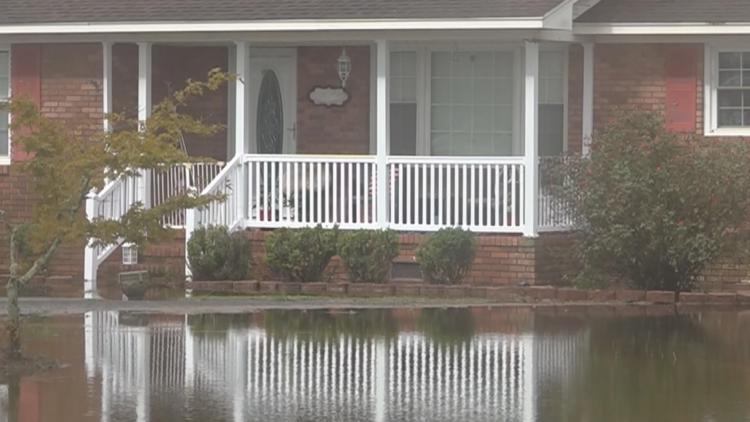COLUMBIA, S.C. — Experts say there are health risks associated with with storm clean up. It can be carbon monoxide poisoning from generators, gasoline exposures or bacteria growth from flood waters.
“People should keep in mind that chemicals, sewage, oil, gas and other dangerous substances can be found in floodwaters and pose a health risk,” Danna Thompson, said.
Thompson is with the South Carolina American Lung Association, she says residents cleaning up their homes after Tropical Storm Helene should keep the following in mind.
“Mold, bacteria and viruses can grow anywhere there is water or dampness, and mold in particular, can cause wheezing, coughing, asthma attacks, and some evidence links mold with respiratory illness,” Thompson said.
The association recommends you use gloves, goggles and N-95 masks when cleaning up to protect yourself from harmful substances.
"Anything that cannot be cleaned and dried and it's porous, such as drywall and carpet, should be tossed. If it's been in floodwaters for 24 to 48 hours, it really, really should be discarded. simply drying it out will not remove that bacteria and the potential toxins that could have been absorbed," Thompson said.
Many residents have dealt with power outages since the storm hit the Midlands, leading them to rely on their generators.
"When you have a generator, you have gasoline that's burning to make that electricity so burning fuel produces carbon monoxide, and if you get it too close to you in an enclosed space, that carbon monoxide you can breathe it in have symptoms, which, depending on how much you're exposed to, can actually lead to death," Jill Michels said.
Dr. Michels is with the Palmetto Poison Center. She says they’ve received many calls related to the storm.
“The substances we're getting calls about relate to the hurricane are carbon monoxide exposures, gasoline exposures, whether people are trying to siphon the gas out of their cars or another type of tank, leaving it in a cup or other container where someone drinks it. We're also getting when they're cleaning, bleach, calls vinegar calls, they're cleaning up their house, and in, they're out in their yard, and so it's going to be bites and stings,” she said.
The poison center says if you are exposed to any toxic substances you can feel symptoms such as headache or nausea.
"Carbon monoxide is colorless, odorless, and tasteless. it's not irritating. You don't know it's in your environment until you maybe start having some symptoms.so with generators, when you're using a gas powered generator, it has to stay at least 20 feet away from your house. Make sure also it's not anywhere near the HVAC intake near your house or your neighbors,” Michels said.
The Palmetto Poison Center can be reached at 1-800-222-1222 24/7 in case of a poison emergency.
The American Lung Association has a resource line that can be reached at1-800-586-4872 and press 2. They also have a live chat available.



